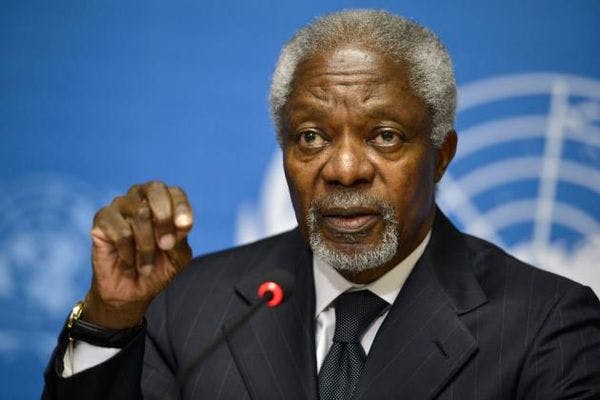Derechos humanos y desarrollo: dos caras de la misma moneda
La ONU debe seguir trabajando para reducir la dependencia y tratar a aquellas personas que experimentan dependencia de drogas nocivas con dignidad y pleno respeto de su derecho a la salud. Más información, en inglés, está disponible abajo.
Suscríbase a las Alertas mensuales del IDPC para recibir información sobre cuestiones relacionadas con políticas sobre drogas.
By Luc Stevens
Former UN Secretary General Kofi Annan once said that, "Humanity will not enjoy security without development, it will not enjoy development without security, and it will not enjoy either without respect for human rights." Human rights and human development are one and the same.
As we celebrated Human Rights Day on December 10, the voice of Thai people could not be more important. The United Nations needs your help.
The Millennium Development Goals are coming to an end in three short years and the United Nations wants to ensure that a diversity of voices are heard in determining a new set of goals that aim to make a positive difference in your community, your country, and the world.
In defining new global goals, the UN wants to ensure that it uses the human rights principles of participation, non-discrimination and accountability.
The UN Secretary General Ban Ki-moon has asked every UN agency to begin a series of discussions in every country around the world. We're asking a diverse range of people to make their voices heard on issues from health, education, food security and migration. In discussing these issues, we need to remember that these are not only social issues, but rights issues.
Every person in Thailand has a right to quality education and health care, a right to food and a right to an adequate standard of living.
Thailand's thoughts on these critical issues will be combined with those from around the world to help determine the next set of global development priorities.
Soon the United Nations will be asking you how you can help shape the world we live in. In Thailand, we will use scores of volunteers to listen to the voices of migrant workers, stateless persons, rural villagers, refugees, and ethnic minorities. And using the power of the Internet and a mobile application called "MyWorld", a global survey that will let you choose the priorities you feel are best. Your answers will be shared with governments and decision-makers who will set the next development agenda for the world.
Since their creation in 2000, the Millennium Development Goals (MDGs) have made a difference in setting national development priorities. In Thailand, poverty has been reduced from 21 per cent in 2000 to about 8 per cent today. Thailand has already met MDG targets and has been daring enough to go beyond and set MDG+ targets.
But challenges remain. Education is a fundamental human right and provides the basic building blocks for opportunity, social and economic mobility, and a catalyst for growth.
An inclusive quality education for all is an essential ingredient for national development. Thailand has taken great strides in creating access to education and improving literacy rates, but in Thailand's fast-aging society, every child in Thailand will have to become far more productive than their parents.
Drug dependency is a growing problem in Thailand and Southeast Asia. We must continue working to reduce dependence and treat those dependent on harmful drugs with dignity and respecting their right to health. When we consider our collective future we must consider everyone. In consideration of the human rights of those addicted to drugs, we must see beyond criminalisation to the human being afflicted with dependence and ensure that each individual has access to voluntary treatment and counselling.
Consider that today, more than a 500,000 people are living with HIV in Thailand - including 14,000 children. Every year, 10,000 people are infected and over the next five years some 43,000 more are expected - many from at-risk populations such as men who have sex with men, injecting drug users, and transgendered people. People living with HIV are also subject to stigma and discrimination in the workplace, at hospitals and clinics, and at school. Stigma and discrimination remains a barrier to access to prevention, treatment, care and support.
Minority communities have also been the targets of discrimination, stigma, and exclusion. Minorities can be found in Thailand and throughout Asia and the Pacific. Many communities lack basic social services such as education, health and housing. Minorities are poorly represented in public life and restrictions on access to citizenship have imposed major barriers to participation and representation.
In 1948, the General Assembly passed the Universal Declaration of Human Rights, a "common standard of achievement for all peoples and all nations", for which people should "strive by progressive measures, national and international, to secure their universal and effective recognition and observance."
Everything we do at the United Nations is entwined in a rights-based approach to development. In seeking your voice, we aim for a set of goals that are bolder than any before. Our path must be bold and relevant to all people and all societies. They must be able to transform the lives of people across the globe, with shared responsibilities for all countries.
People around the world are looking to us for action beyond 2015 to create a world that creates prosperity, preserves dignity, and promotes peace. We cannot afford to fail. We need your help.
Luc Stevens is the United Nations resident coordinator and UNDP resident representative in Thailand.
Keep up-to-date with drug policy developments by subscribing to the IDPC Monthly Alert.
Regiones
Perfiles relacionados
- United Nations
- United Nations Development Programme (UNDP)
